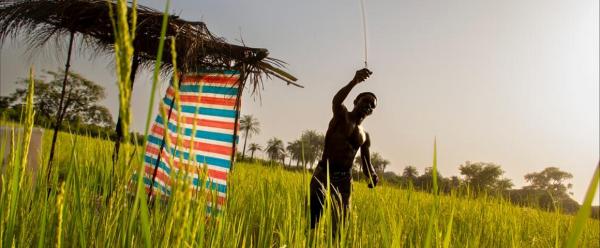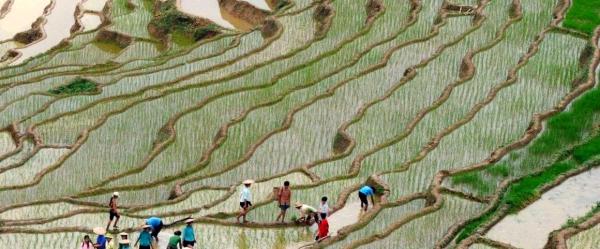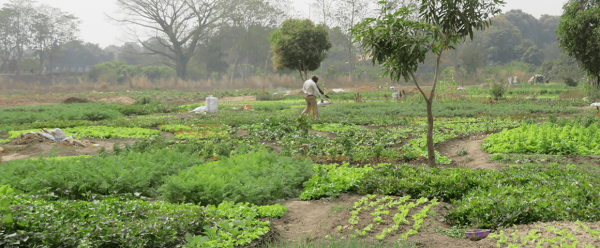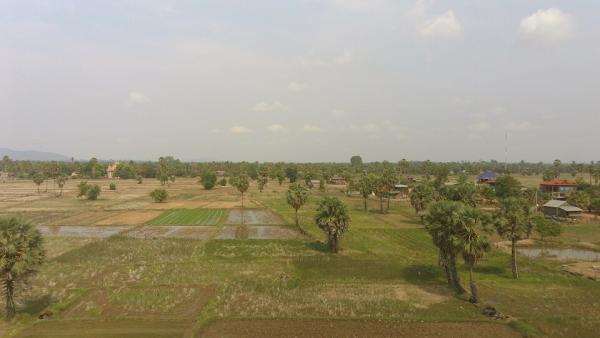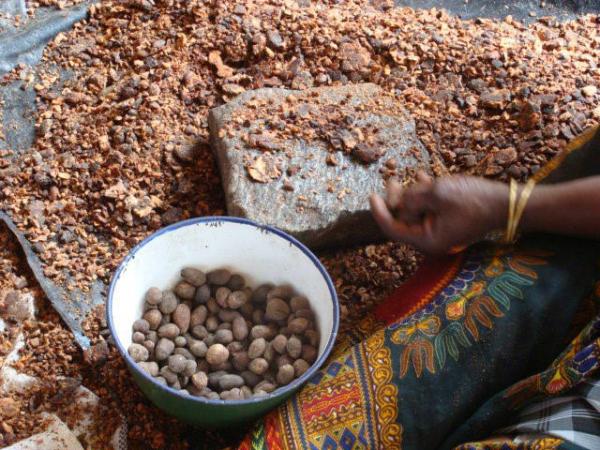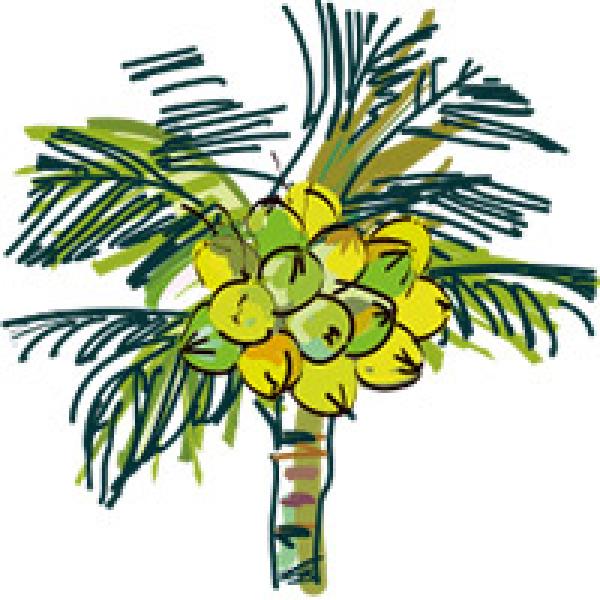Institutional news 28 February 2023
- Home
- Our activities, our impact
- Tropical value chains
- Rice

Rice
Our remits and research fields
CIRAD's research is conducted within a framework of strong partnerships.
- A global partnership coordinating operations at the main international research organizations working on rice production-marketing systems and the associated value chains.
- Platforms in partnership for research and training in the global South.
Some 50 scientists are involved in fulfilling the various remits:
- analyses of public policy and value chain dynamics
- rice genome editing
- sustainable technical and social management of water supplies
- design of cropping systems based on the concepts of conservation agriculture
- modelling of the interactions between rice and its biophysical environment, on a cellular, whole plant, plant cover and landscape level
- creation-dissemination of new rice varieties better suited to current and future environmental constraints and market demand.
Appraisals
- Economic analyses of the rice sector in support of development policies, diagnostic analyses of value chain performance in conjunction with institutional organization.
- Rice development project feasibility studies.
- Design and coordination of R&D projects for rainfed rice, including sustainable management of natural resources, and irrigated rice, including the hydro-agricultural infrastructure component.
- Advice on the development of sustainable cropping systems, including agronomic management and varietal choice in line with the production site.
- Assessment of rice research and development projects.
- Agronomic and varietal choice advice at production sites.
- Analyses of the conditions for establishing geographical indications or terroirs.
- Laboratory analyses: soils, leaves, diseases, varietal purity, etc.
- Analyses of the organoleptic and technological quality (sensorial and instrumental analyses) of rice grains.
Expertise
Biodiversity and exploitation of genetic resources
- Genetic resource management, analyses of gene diversity and flows, molecular biology, ecophysiology, varietal creation and breeding.
- Seed production, including F1 hybrid seeds.
Optimization of production
- Agronomic engineering for the design of systems based on DMC or conservation agriculture.
- Cropping practices and fertilization.
- Weed and pest control.
- Technical and social management of water supplies.
Crop models
- PYE: agro-climatic yield simulator.
- SAMARA: trait assembly and environmental response simulator, aimed at pinpointing plant ideotypes and testing them in variable climatic environments, in combination with different agronomic parameters.
- RiDev: simulator of rice spikelet phenology and sterility as a function of temperature constraints.
Decision support and stakeholder capacity building
- Design of rice market observatories and information systems.
- Training in supply chain analysis and information system management by stakeholders.
- Support of public policy decisions and of the negotiating capacity of producers' organizations.
























